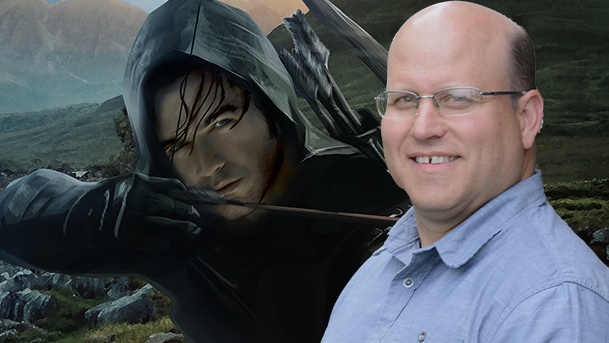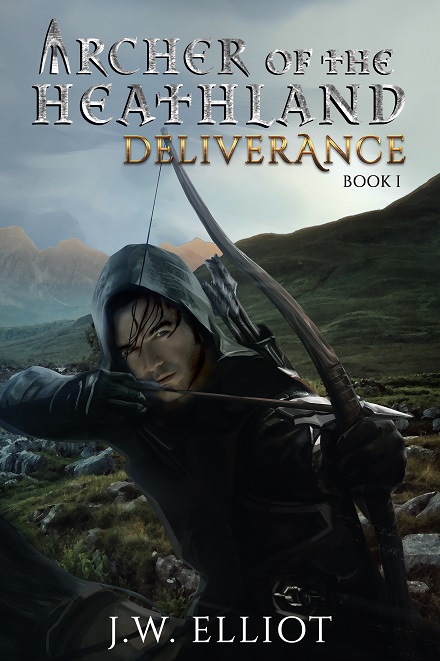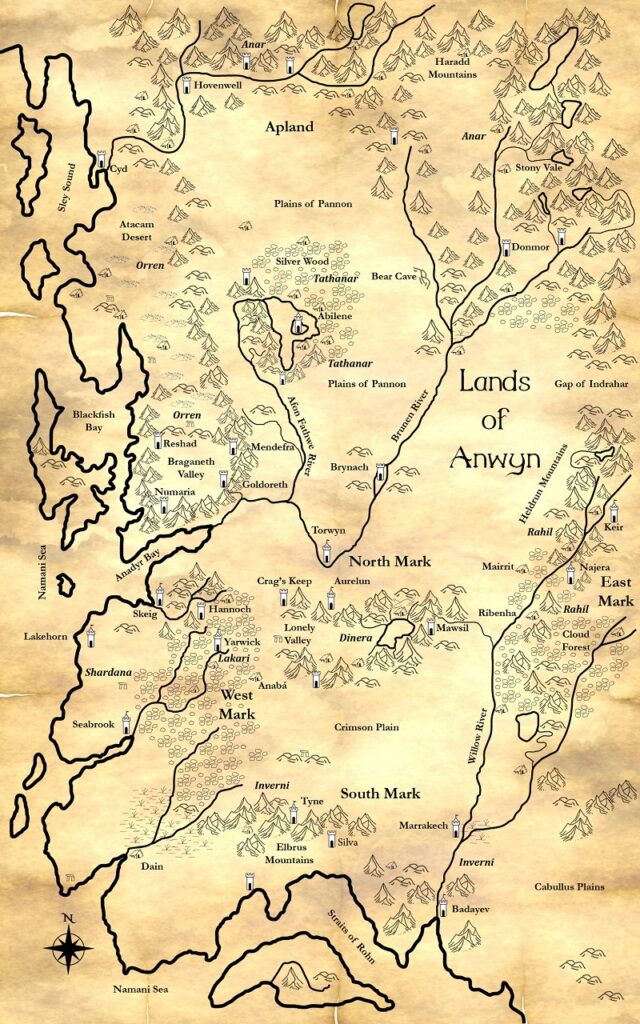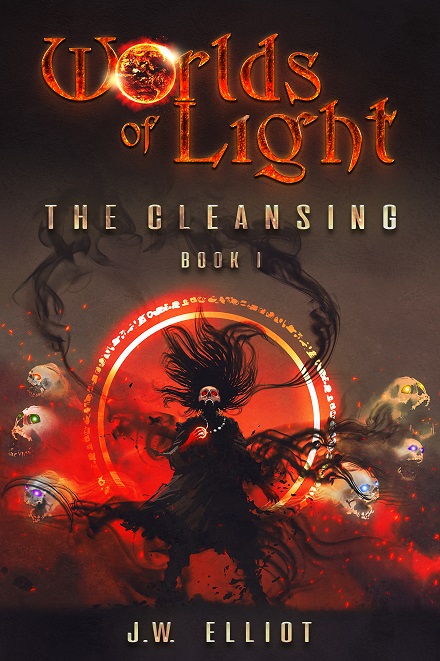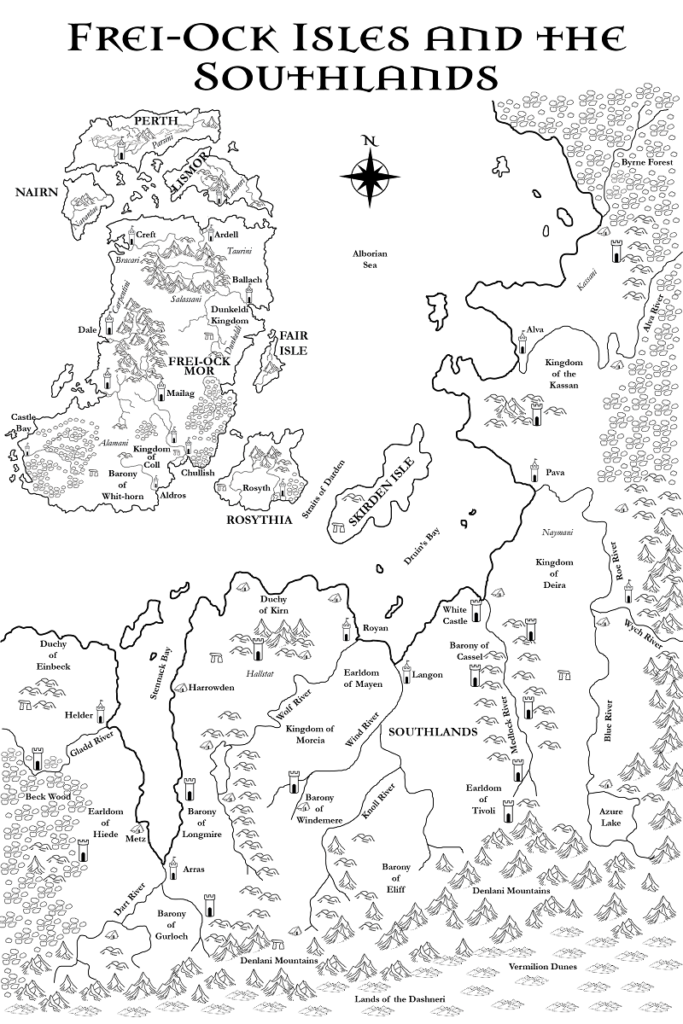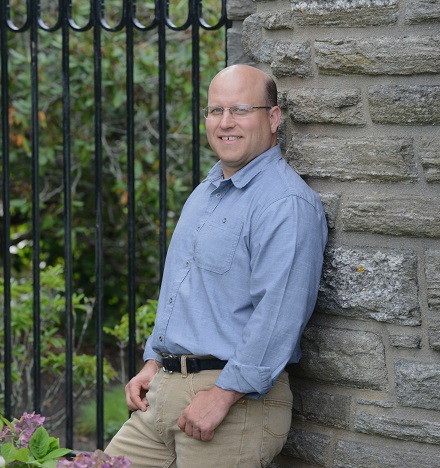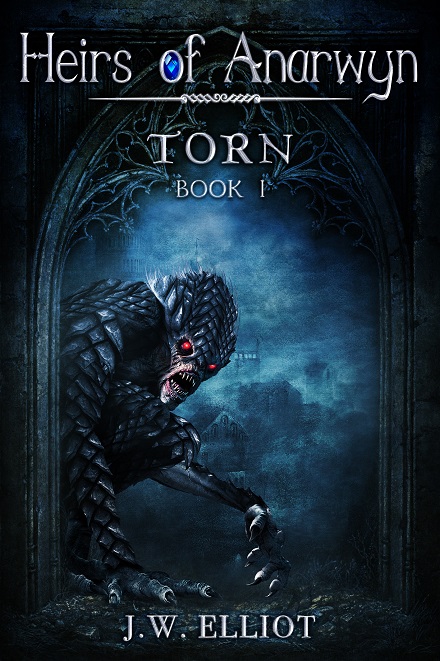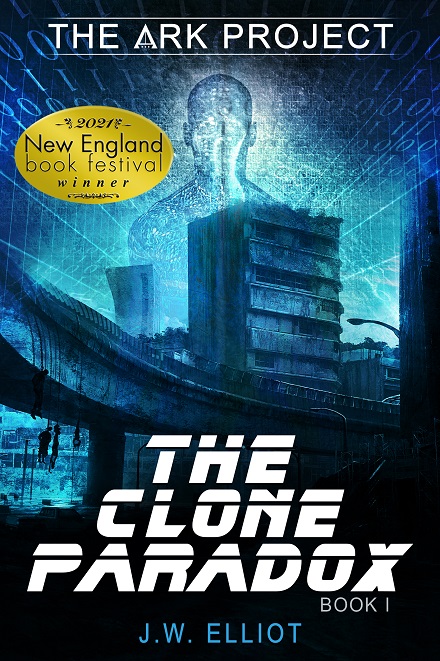Tellest recently had the good fortune of working with a multitalented storyteller, J.W. Elliot, the creator of multiple franchises, including the historical fantasy series, Archer of the Heathlands. Elliot is continuing to write other fantasy stories, but with a 20+ book catalog, it’s been great fun diving into the worlds he’s already worked on and learning about what is to come. Now it’s your turn to dive in and see what drives this talented author. Read on to learn more about J.W. Elliot.
Tellest: Greetings to you, J.W.! I wanted to thank you for the opportunity to speak with you about your writing journey, your incredible books, and your massive catalog. With all the things you have on your plate, I’m sure you are very busy, so I feel very appreciative to be able to be given some of your time. I’m interested in letting readers behind the curtain a bit, to see how you make your magic, and to learn more about you.
J.W. Elliot: Thanks, Mike. It’s good to be here. For me, writing is a hobby and a passion, so I always love the opportunity to “talk shop.”
T: I always like to start my interviews off with a bit of a softball question that helps readers learn more about their new favorite creator. What inspirations did you have that led you to the path of the writer? Did you have an author you looked up to growing up or a storyteller in the family or community?
JWE: Some of my earliest memories are of my mother reading to me. We had a subscription to National Geographic, which I devoured, and the Reader’s Digest, as well as a bookshelf filled with encyclopedias. So I have always loved stories and knowledge. But I think the real catalyst in me becoming a writer occurred when I was ten years old, and my family moved from Idaho to Oklahoma. It was a very lonely time for me, and I found solace and friendship in the characters I met in the books and comics I read. That was where I discovered J.R.R Tolkien, Ursula K. LeGuin, and Katherine Kurtz. That experience inspired me to take a creative writing course in high school, and I have been writing fiction ever since.
T: What are some of the moments that you’ve had in your writing journey that have encouraged you to keep going along with the craft? Conversely, what challenges have you had that might have been close to chasing you off the path?
JWE: I dabbled in fiction writing for many years while I went to graduate school and started building my academic career. I often worked on my stories to wind down and relax at the end of the day. Eventually, I started reading them to my kids at bedtime, and their enthusiasm kept me writing. I knew I had to have something new for them the next day. My new series, Heirs of Anarwyn, was created in that give-and-take as I read and the kids critiqued.
The biggest challenge is the time and discipline it takes to produce good work over and over again. Writing is mentally and emotional exhausting. If I didn’t find so much pleasure in writing these stories, I don’t think I could keep doing it.
I also spent years getting rejections and that can be quite discouraging. Then when I did get work published and the reviews came in, there were always those trolls who felt it was their responsibility to poke writers in the eye. I respect honest reviews. Personally, I read them and see if they have a legitimate point. If they do, I try to fix the problem. Most of the time, however, trolls criticize books for being something they never set out to be or they nitpick at things that are nothing more than personal preference and have nothing to do with the quality of the book. Those kinds of reviews can hurt, but I have long since abandoned any notion that I should hold out for universal popularity. I can’t please everyone. So, I write stories that I want to read and hope others will find them as fun and engaging as I do.
T: You described spinning tales for your children, and then having more for them the next day. That sort of storytelling has been picking up pace over the last decade or so with things like WattPad, and certainly more recently with the advent of Kindle Vella. Have you ever thought about writing a story where your fans help to give you near-realtime feedback?
JWE: I have tried both WattPad and Kindle Vella without much success. I found WattPad cumbersome and time-consuming to manage. And when I announced that I was releasing a story on Vella, I actually had fans write me and tell me they would never use Vella for reasons I never understood. After several months, I finally pulled the story. I may try again later, but for now, I have had more success publishing novels and novellas and giving away free short stories in Prolific Works and MyBookCave.
T: A great deal of fantasy writers have their favorite authors or fandoms, but you seem to appreciate it all. Is there a certain fantasy that you lean on if you ever need to decompress or reel yourself back out of any of your own works?
JWE: I love all great stories. I really don’t care what the genre is. But my “go-to” fantasy books—the ones I return to over and over again—are, of course, J.R.R. Tolkien’s Lord of the Rings and Ursula K. LeGuin’s Earth Sea Trilogy. I think these stories have a timeless quality to them that spoke to me as a child and still speaks to me as a more jaded adult. I devoured the Terry Brooks’s Shannara series. Somehow, I missed reading Frank Herbert’s Dune while I grew up, but I just read the first book and loved it. So now, I’m getting into that entire series. I really enjoy Brandon Sanderson—especially the Mistborn trilogy and The Reckoners series. I find the Harry Potter series enjoyable, and I’m about halfway through Robert Jordan’s The Wheel of Time.
T: You’ve mentioned before that you can’t watch the Hobbit movies again. How do you think they mismanaged that project enough for you to not want to watch the works of one of your favorite authors?
JWE: I think my response to the movies was conditioned partly by the fact that during one of the most challenging times of my life, Tolkien and his hobbits were there for me. I also expected The Hobbit films to be more in line with the Lord of the Rings movies. I have things I disliked about those movies (elves at Helms Deep, for example), but overall, the producers attempted to remain true to the stories, the characters, and the world that Tolkien created. I don’t think the Hobbit movies did.
I understand that they had to modify things to translate a literary piece into a visual medium, so I’m willing to give them some leeway. However, they introduced characters and relationships that could not have happened in Tolkien’s world (i.e. a love relationship between an elf and dwarf and the white orc who wouldn’t die). They also were not faithful to the magic or the technology.
For example, they turned Radagast into a bumbling fool, when he was a powerful wizard, and they transformed Bard’s longbow into a massive crossbow and the black arrow into some fantastical harpoon. (By the way, a crossbow with limbs that thick could NOT have been drawn by hand and had Bard shot if off his son’s shoulders like they showed in the movie, it would have taken his son’s head off.) The final film with the battle at the Lonely Mountain was more like a bad Disney ride that just wouldn’t end than a Tolkien novel. I could go on, but basically as a lifelong fan of Tolkien, I felt betrayed by the movies. I think they betrayed the world of Middle Earth and robbed it of the wonder and magic that most fans found in The Hobbit. I hope someone will go back to The Hobbit and remake the films.
T: You write fiction, in both the fantasy and science fiction genres, but you also write non-fiction works as well, covering a good deal of historical content. Would you say it is difficult to jump back and forth between the two styles, or have you written enough of each at this point that it’s second nature?
JWE: I see both history and fiction as simply different methods for telling a story. History is a story about reality, while fiction can be about anything the human mind imagines. Historical work should be truthful, accurate, based on solid, verifiable evidence, and must give us some insight into the human condition. Fiction needs to meet the same criteria. Certainly, we have more freedom to make things up in fiction when the evidence doesn’t exist, but it also needs to be truthful in the sense that it should come from the heart and not shy away from trauma and prejudice, joy and confusion, fulfillment and sadness. We are hard-wired to tell stories, whether real or fictional. There are challenges in moving back and forth from fact to fiction, but I have been doing this my entire adult life, so it doesn’t give me much trouble. The only problem is finding the time to do both.
T: Speaking of that, not only do you have a huge catalog of books, but you have a vast array of hobbies that I’m sure inform and inspire your works. But it all must suck up a lot of your time. How long have you been working on these stories, and what are your methods for keeping to pace when you’re writing?
JWE: The trick is to prioritize writing time and avoid time wasters. I grew up playing video games (heck, I remember when Pac Man first came out), but I don’t play anymore because, for me, it was non-productive time. I also don’t spend a lot of time watching TV or sports or surfing social media. There is nothing wrong with someone finding fulfillment and joy in those activities, but for me, I have to choose whether to do those things or the things I really enjoy.
I also make sure I do some work on my stories every day. Even if it’s only rereading what I wrote the day before. Some authors use word quotas to keep their productivity up, but I don’t find that useful. I work full-time at my “real” job, and so I can’t tell from one day to the next how many words I can write. But I write fast, and once I get a block of time to work, I can dive in and get seven thousand words down in a few hours. It’s all about consistency and discipline.
T: You spend a great deal of your time among nature, so it’s no surprise that your Archer of the Heathland series feels so at home in the wilderness. Does your mind wander when you’re off canoeing or rock climbing, or are you rooted in the moment?
JWE: It depends. I’ve been canoeing so long it comes naturally to me, and I don’t have to think much about it unless I’m shooting some rapids. So my mind wanders a lot. Rock climbing is less natural for me and requires my full attention. It doesn’t help that I have a healthy respect for heights. I have found that getting out and enjoying the real world is one of the best ways to recenter and get ideas for my stories. There are several scenes in the Archer of the Heathland series that came directly from my adventures in the outdoors. And my trip to Mammoth Cave in Kentucky inspired several scenes in The Clone Paradox.
T: Do you ever find yourself planning nature trips for the sole purpose of finding inspiration for one of your stories?
JWE: My wife and I like to take summer road trips across the country. We live in Massachusetts and have family in Idaho, Utah, and now Colorado, so it works out wonderfully. I am a historian, and I seek out historical sites, natural wonders, etc. All this feeds my historical and creative brain. On occasion, I have traveled to places to get ideas for stories. For example, in the short story “The War of the One-Eyed Woman,” I went to New Hampshire to hike through the flumes and gorges there so I could describe the feel and smell of them more accurately in that story. Part of the reason for visiting Mammoth Cave was to help me get a feel for what it felt like to be deep underground in utter blackness. I used that experience in the Heirs of Anarwyn series. So, to a certain extent, I do plan trips that way, but mostly I am just traveling for the thrill of adventure and discovery and to meet new people and see new places. I try to channel that sense of excitement into my stories.
T: Where in the world would you like to adventure to next to infuse into your written worlds?
JWE: I have traveled Portugal, Mexico, Brazil, and Canada, but I really want to visit the British Isles—especially Scotland. Both my wife and I have Scottish ancestry. I also have some Welsh, English, and German. I love Celtic music and Scottish history. I borrowed extensively from Scotland in my Heathland series as several reviewers have noticed. I also used a modified Welsh language in my Heirs of Anarwyn series. After that, I want to travel Spain, Italy, Turkey, Egypt, India, and then travel the Andes. Basically, I want to see the whole world.
T: Likewise, another trait that you have in common with your main character in the Archer series is your hobby of crafting and shooting longbows. How did you come about that activity, and what is your favorite part about it?
JWE: My dad gave me a fiberglass bow when I was about eight or nine years old. I’m afraid I did some really dangerous things with that bow that I’m not going to talk about here for fear of giving someone bad ideas. I took up bow hunting as a teenager when I transitioned to compound bows. Graduate school left me little time to pursue archery, so I set it aside until I graduated. When I went back to my compound, I found I wasn’t enjoying it as much as I had, and I almost gave up archery altogether. About that time, I served a week at my daughter’s summer camp as the archery instructor where I met a man shooting a 42 lb. recurve. He let me shoot it, and I discovered what I had been missing. Perhaps it’s the historian in me, but I find the simple bow and string fascinating, and that is where my passion is. I sold all my compounds, purchased a Fred Bear recurve, and started relearning the joy of shooting again. I wanted to try a longbow, but all the ones I could find at the time were just too expensive to justify purchasing. So I set out to learn how to make my own. It took me a couple of years to get the process down, and I published a book on how to do it that I hope shortens the learning curve for others. I am currently reverse-engineering a Turkish bow I have. My first attempt came close but was not good enough. I’m hoping to make a second attempt this summer. Still, it is very satisfying to go into the woods using equipment I made.
T: I’m sure it’s a passion project, so I may already know the answer, but out of sheer curiosity, do you take commissions for bows if one of your fans wanted a J.W. Elliot original?
JWE: I have made longbows for family and friends. The challenge is that it takes about thirty hours to make a bow, and with my full-time work and the demands of my writing, I don’t really have time to offer to make bows for folks. In addition, few people understand the time and effort it takes to craft a bow by hand in a small shop like mine and are seldom willing to pay a reasonable price for one. If I sell a bow at $500 dollars, after I subtract the cost for materials, etc. (about $100-150), I only make about $10-$13 an hour. That isn’t sustainable or cost effective. There are some great bows out there for less than I can make them. Kustom King Archery and 3Rivers Archery are a good place to start looking. If you want an Asian or Turkish bow, Alibow and AF Archery have reasonably priced bows that are of high quality.
T: As mentioned earlier, you don’t limit yourself to fantasy as your only fiction expression. You’ve also got an award-winning science fiction series in The Ark Project. Was that a project that you had to separate from the Archer series and your other more fantasy-facing stories, or were you able to work on that simultaneously without any issues?
JWE: I always have at least three books in process at any given time. One that I’m editing. One I’m writing. And one I’m planning. The Ark Project was a series that came and went over the years as I became more involved in the Archer of the Heathland series. But the question of what it means to be human in a world where science and technology have superseded biological evolution just wouldn’t leave me alone. It was challenging because, as a historian, I tend to live in the past. I had to do a lot of research to make sure I got the technology and science correct. Even though I made up a bunch of advanced technologies, I think the future I created for The Ark Project is possible. It could actually happen.
T: You’re right. In a lot of ways, The Ark Project feels like it could be prescient. What’s one thing that you’re worried could come to fruition that you’ve written about in that series?
JWE: As a historian, I study change and continuity over time, so I am not afraid of change or technology. What I worry about is that because humans tend to be very conservative creatures, we will resist adjusting thoughtfully to a changing climate and new technologies until we face cataclysmic change that could result in considerable human suffering. I think we need to have a thoughtful debate about cloning and genetic therapies. Are there moral limits we should not transgress? If so, what are those limits? What are the ethical implications of modifying human brains and bodies with technologies that can make them faster, stronger, smarter, etc.? At what point have we gone too far?
And how do we manage climate change so that our species can survive on this planet? Life will probably struggle through no matter what we do. The question is, will we still be here in 5,000 years to enjoy this magical planet. I hope so. But I think it will depend upon the choices being made now and in the next few decades.
I also think we need to figure out how much we want algorithms to dictate our life choices. Our online shopping, web surfing, and social media use are already dictated by algorithms. It is only a matter of time before algorithms will know more about us than we know about ourselves. We need to manage that possibly and plan for it.
T: You study martial arts as another of your hobbies. Do you find that helps you to choreograph some of the action sequences in your stories?
JWE: I do. Those who practice martial arts will find familiar techniques being described in my fight scenes. I also teach a college course entitled “A World at War” which examines human-on-human organized violence from the paleolithic to the present. That evolutionary and cross-cultural perspective really helps—as does having been in real fights. I often find real historical battles and tactics I modify and redeploy in my fiction. Action scenes are challenging because you have to balance the need to keep the pace moving but still give the reader enough information to experience the fight emotionally. Too much “action” can be confusing. Too little can be disappointing.
T: What mistakes do you think you’ve caught yourself making (either in the process, or after publishing) when it comes to your books? Did you ever look back at one of your books years later and think it was rubbish—I feel like that’s a pretty common thought among authors.
JWE: I didn’t publish until I felt like I was writing at a professional level. That meant I spent years working on the craft and submitting novels and short stories to agents, presses, and contests. I took the feedback I received and tried to learn from it and get better. Consequently, I don’t think of any of my earlier books as rubbish. They were learning experiences, and I have been tempted to go back and correct things like overuse of dialogue tags or to tweak scenes for more tension and suspense. But I’ve resisted because I think my time is better employed in writing new, and I hope, even better stories.
I did start out writing from the seat of my pants—what folks in the writing community call “pantsing.” I have since learned that it is far better to do some initial planning and outlining before I start. That way, I know I’m starting with a story that is going to work. I always drift from the original outline, but that’s part of the fun of creating. This is why I always finish every book I begin. I don’t waste time on a story that isn’t going to work. I make sure it will work before I start. That doesn’t mean it’s necessarily going to be an award winner, but it should be able to stand on its own feet when I’m done.
T: Even though you’re plotting out a bit more of the time these days, do you ever run into any writer’s block moments? How do you manage to circumvent those?
JWE: I don’t think I ever get what I would call writer’s block, which I understand as the inability to write. Since I have so many projects going, there is always something to work on. However, if I run into a problem with a story, I make lists of possible trajectories and then play with them until I find one that works. I also switch projects and work on a different book for a while. I might take a break to exercise, shoot my bow, go canoeing, or do some woodworking and let my brain settle. I have found that trying to force ideas to come never works. If I just let things rest for a day or two I will find the solution. Our brains are incredibly elastic tools, and if we get out of the way, they will come up with amazing things.
My philosophy is that inspiration is not found, it’s created. By that I mean there is no mystical muse upon which we have to wait for inspiration. We can create work habits and processes that generate ideas and inspiration consistently. Once we understand the structure of an effective story, what makes a good character, etc., we can construct tools to help us generate all kinds of ideas. That’s what I do, and so far it is working pretty well. My entire Archer of the Heathland series is on the Amazon bestseller lists, two of my books have been the #1 New Release on Amazon. I’ve won several writing awards, and I am making good money on my fiction writing. I can’t claim to know everything or even to have mastered the writing craft. I don’t think I ever will. But by systematically studying the craft and always trying to get better, I think I am making real progress. It continues to be a learning experience. And it’s this constant challenge that makes writing so fulfilling.
T: What is your favorite writing tip or bit of advice that you’ve received or heard from a famous writer?
JWE: Years ago, after receiving a series of “positive” rejections from editors and presses, I contacted David Farland, a New York Times Best Selling author. (He passed away recently, which is a huge loss to the fantasy community and the writing community.) Despite all the demands on his time, he took a moment to write a very encouraging email in which the most important phrase was “study the craft.” This is what every writer, fledgling or well-seasoned, needs to be doing. Those three words changed my life and helped me write some award-winning books and allowed me to make money pursuing a hobby I find so fulfilling.
T: What are some of the things that other storytellers might be missing when they’re creating their work that they could focus on to bring out the best in their work?
JWE: I’m going to dive into a controversial subject here because I feel strongly about it. Some writers insist on trying to ignore story structure. I have even read some professional writing coaches that dismiss structure out of hand. In my opinion, this is a huge mistake. We are biologically wired to anticipate certain things in a story, and authors ignore this fact at their peril. Some authors with an intuitive sense of how stories work might get away with this, but their stories would be better with a little bit of work on story structure. There are lots of options, and I don’t care which one an author uses. I prefer James Scott Bell’s approach because he has a clear, repeatable method that works. I’ve created my own system that I have cobbled together from other writers and writing coaches that leans heavily on James Scott Bell, Lisa Cron, Dwight Swain, Sol Stein, and Jack Bickham. I am continually refining my process and learning as I go.
Also, some authors fail to include all of the senses in their writing. As authors, we almost always mention sound and movement, but some don’t show what a place smells like or how it feels to the touch. These are really important details that help bring a story to life. Some authors also overuse dialogue tags or add unnecessary and distracting adverbs to dialogue tags. (Ex. “he said soothingly.”) Likewise, I think authors need to treat their setting as a character to which the other characters respond. We all have emotional response to our environment. Our characters should, too.
T: What’s some advice that you could give to other dreamers who are starting their journey, and want to develop an impressive catalog of stories?
JWE: There is a lot of bad advice out there, so have your BS detectors turned on. Just because a famous writer tells you there is only one way to do something, that doesn’t make it true. I really find it unhelpful, for example, when successful writers pontificate about their muse or tell a beginning writer to just keep writing. There is no muse. There is only your brain and your lived experience. So don’t waste your time waiting around for the muse to clobber you over the head. And spilling more ink on the page without any self-reflection, analysis, or evaluation of what you’ve done is of very little use. You should always be trying to improve your craft. To do that, you have to study it. On my website, I have a list of great books about the craft of writing. You can start there. https://www.jwelliot.com/writers-resources/
T: The newest Archer book ends in a way that is smooth enough to move away from if you needed to, but it also leaves the door open enough to return. What are your plans for Brion now? Are you sticking by his side, or are you looking to focus on another hero? And if you are choosing a new protagonist to breathe life into, are you staying in the same world you’ve built?
JWE: For now, I am going to let Brion rest. His character had a full arc with lots of growth, and he needs some time to settle into his new role as duke. But I have already started work on a spin-off series with Mara and Jack (see Archer of the Heathland books 4-7) that I think will be three books. Then I have at least one more spin-off I want to do that focuses on crossbows rather than longbows with a couple of the characters introduced in book 7. These will all be set in the Heathland, and they will all have some familiar characters in them.
T: J.W., I want to thank you for taking your time to pull back the veil a bit and let new and old fans alike learn more about you and your craft, whether it’s writing or your other passions. I know that you are always working on a lot, so I appreciate the opportunity to carve out a bit of your days leading up to the release of this interview.
If someone wanted to learn even more about you and your worlds, where could they find you?
JWE: Thanks Mike. It’s been a real pleasure. Your questions were insightful and fun to think about.
My website is www.jwelliot.com, where you can find all my books with links to purchase them. I also have a blog on my website and a page for writers with lots of good books and links to podcasts, etc. My book pages also contain links to Pinterest pages. I also have a YouTube Channel at J.W. Elliot where I have free audiobooks.
You can also sign up for my email list where I offer free stories, access to free books, announcements of sales events, and a lot of free material about archery, and other historical traditions and events that inform much of my writing.
I’m on Facebook @JWElliotBooks. All of my books are on Amazon, in print, Ebook, and Audible. They are also available in Kindle Unlimited (KU) and the Kindle Owners’ Lending Library
I’d like to thank J.W. Elliot one more time for being a lovely guest to the Tellest website, and for enlightening us, interviewers and readers alike, to what sort of things make him tick. It’s always interesting to see how the gears move in the mind of such a talented storyteller. As we mentioned in the interview, Elliot’s catalog is expansive, but we recently promoted his book, Archer of the Heathland: Deliverance, and you can see that promotion here. Or, if you want, you can just check out Archer of the Heathland: Deliverance on Amazon now! You can get it 66% off if you pick it up while it is on sale.
Michael DeAngelo
Latest posts by Michael DeAngelo (see all)
- Fantasy Promo – Quinine - July 25, 2024
- Sigil Art – Grim’s Hold - July 24, 2024
- Fantasy Promo – Light the Shadows (Under Elfhame’s Stars) - July 24, 2024
